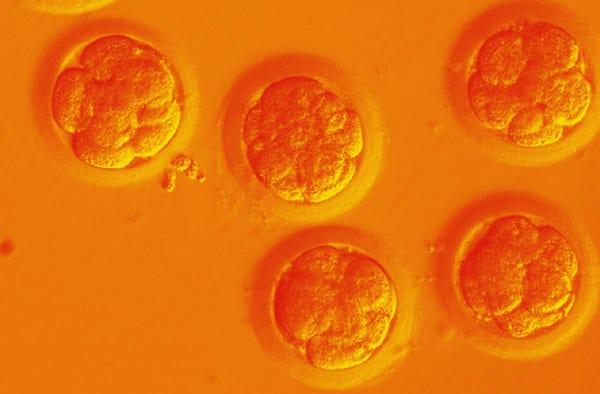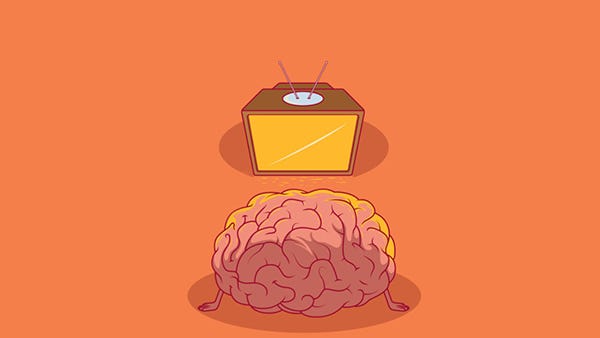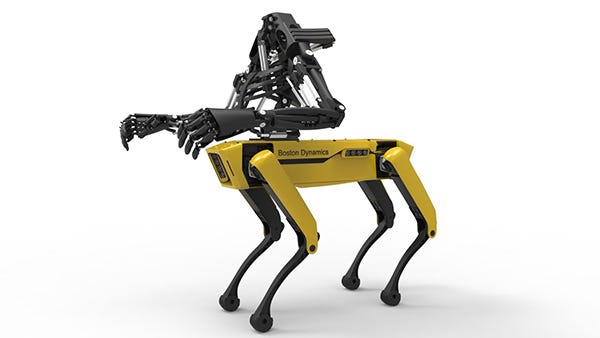Issue #182 - designer babies are here; how to make a robotic centaur from SpotMini; hacking the world with digital biology
View this email in your browser
This week was mostly dominated by the news of the birth of the first genetically modified humans in China and how the world reacted. Other than that - you can add arms to SpotMini to make a robotic centaur; Uber's AI cracked games other AIs were failing at; how gene sequencing can predict your chances for success; hacking the world with digital biology; and more!
The most clicked link in last week's issue (15% of opens) was the showcase of robots from Harvard University.
DESIGNER BABIES ARE HERE
Chinese scientists are creating CRISPR babies

The moment that many opponents of genetic engineering fear has happened. Early this week, a team a team at the Southern University of Science and Technology, in Shenzhen, China, led by He Jiankui announced that a first genetically modified human has been born (twins to be exact). The plan was to eliminate a gene called CCR5 in hopes of rendering the offspring resistant to HIV, smallpox, and cholera.
Scientists Around the World Condemn That CRISPR Baby Experiment
The scientific community generally condemned the research that led to the birth of first genetically modified humans. The scientists say that the He Jiankui and his team violated several voluntary accords among genetics researchers. The MIT Technology Review reported that He is under investigation by the Chinese government and that his university condemned his work. Here is another article from MIT Technology review that describes how other scientists reacted to this news.
Rogue Scientist Says Another Crispr Pregnancy Is Underway
He Jiankui spoke at Second International Summit on Human Genome Editing about his research into modifying human genome which resulted in the first genetically modified human to be born. This article from Wired summarises this lecture, where he revealed there might another modified human on the way. The article also reports how other scientists reacted to He's research.
Editing Babies? We Need to Learn a Lot More First
This article from New York Times explains the implications of the modifying human genome saying it is not that easy and we still need to learn more about genome to be able to make precise changes with minimal side effects.
Designer Babies Are Here. What’s the Next Edit?
The first genetically modified human got a resistance to HIV (at least that's the plan) but there are other ways we can improve our genome. In the Potential upgrades section of this article some other possible upgrades but it also points out that modifying one gene can lead to a conflict with another gene, resulting in unwanted side effects.
► Can We Create Designer Babies? Eugenics, Bioborgs, And Baselines
I'd like to share again the video features in the last issue. It looks at the problem of designer babies and eugenics, explaining the pros and cons and ethical dilemmas involved in a fair and neutral way. However, the last third of the video gives arguments for creating designer babies.
MORE THAN A HUMAN
Paralyzed Patients Can Now Control Android Tablets With Their Minds

Thanks to advances in brain-computer interfaces, paralyses patients are able now to control an off-the-shelf Android tablet using just their thoughts. The technology is limited to point-and-click actions at the moment but it allows the patients to use apps such as Gmail or YouTube.
ARTIFICIAL INTELLIGENCE
Uber has cracked two classic ’80s video games by giving an AI algorithm a new type of memory

Reinforced learning (RL) lead to AI mastering old Atari games and beating humans in Go. However, for some games like Montezuma’s Revenge and Pitfall!, algorithms based on RL failed. Researchers from Uber announced that they have created an AI that remembers where it has been before, and will return to a particular area or task later on to see if it might help provide better overall results. Plus it included a little guiding hand from humans.
► This AI Learns Acrobatics by Watching YouTube
This video explains a new technique in which an AI learns acrobatics just by watching videos. No tracking or motion capture required.
ROBOTICS
► YouBionic adds creepy hands to SpotMini, the creepy robot dog

YouBionic is offering an entirely 3D-printed arm solution for the Boston Dynamics SpotMini, effectively turning a robot-dog into a robot-centaur. The files for 3D printed parts are available on YouBionic's website for $179.
North Sea Deployment Shows How Quadruped Robots Can Be Commercially Useful
ANYmal from ANYbotics is a quadruped industrial robot similar to Boston Dynamics famous SpotMini robot-dog. Recently, ANYmal was tested on an offshore power distribution platform in the North Sea where it was inspecting the platform on its own and giving another idea how this kind of robots can be used in practice.
BIOTECHNOLOGY
► Elsa Sotiriadis - Hacking the World with Digital Biology

CRISPR lets us rewrite the source code of our own species. We can now design, test and build designer organisms in the cloud, and cells are becoming nano-scale manufacturing units for anything from lab-grown meat and mushroom leather to medicines. In this talk, Elsa Sotiriadis explains how biology became an information technology and how it can change the world and gives examples from shoes made from algae to terraforming Mars.
The ‘Geno-Economists’ Say DNA Can Predict Our Chances of Success
Thanks to large databases of human genomes, "geno-economists" can now answer questions like "is there a correlation between genes and success?". This article from New Your Times Magazine takes a look at this field and asks "what can go wrong?"
Controversial new test could be used to screen embryos for intelligence
For the first time, couples undergoing in vitro fertilization (IVF) could soon be able to screen a respective embryo for complex traits, like low intelligence and disease risk. For now, Genomic Prediction, the firm that developed the new method of testing, says it will only offer the ability to identify embryos deemed likely to have a “mental disability.” The same method used to test for mental disabilities, like Down and Patau syndromes, however, could one day be used to identify those embryos with the greatest probability of having a high IQ. For the time being, Genomic Prediction has committed to not screening for high IQ, citing ethical concerns.
Thank you for subscribing,
Conrad Gray (@conradthegray)
If you have any questions or suggestions, just reply to this email or tweet at @hplusweekly. I'd like to hear what do you think about H+ Weekly.
Follow H+ Weekly!



